On learning, right timing & finding directions when we need them: {More than Just One Paragraph 21/30}
On our way to his friend's house this morning Bean asked if I knew the way.
"Not really," I said. (I have this thing called an iPhone. It makes me navigationally lazy.)
"Don't worry, mama. You don't need to know the way. You can count on me. I'll show you," he said confidently.
It's true of course. For more than driving directions. This boy is my teacher. This in-two-weeks-third-grader. This coltish legged boy with a missing-tooth grin. I've fallen in love with him all over again this summer. He's just so tender and thoughtful lately. So full of a new awareness that everyone around him has emotions and thoughts and secret goals and dreams.
I often notice him watching me subtly: for a furrowed brow, or a lightness in my voice. He wants to know, "Are you happy mama?" It matters now, differently than it ever did before.
I can feel the importance of how I am in each moment with him now. The way it's making something indelible. A blueprint of the emotional topography of woman.
It's no small thing, this. Raising boys.
Sprout gets to be the only child at dinner tonight. We sit around the butcher block counter together eating soup with grilled bread and talk about numbers. We consider "How many, and then one more?" Then we make a game of writing the numbers out, each one with their own special characteristic--5 with it's baseball cap, 3 with it's two bouncy balls.
It might seem odd that I haven't taught him numbers before: he's 4.5, headed for preschool, and I'm a certified elementary teacher.
But the thing is: the meaning of the word "readiness" is debatable in my book. In the school system, readiness is knowing your numbers and letters so that you can be ready to learn mathematical operations, write sentences, and read about Spot and Jane. Then of course, those skills are learned, because they are readiness indicators for later academic skills, and so on, each skill set building to the next level until ... what? We reach the end of school, and have a bunch of skills that prepared us for more school. Hmmm. Is that really the goal?
If, instead you think about readiness from the standpoint of developmental capabilities, then things like learning numbers and letters and reading and writing are naturally, and almost inevitably a part of the process of learning to function meaningfully in the world. Academic skills are acquired when they're needed and appropriate to problem solve and recognize patterns; to make connections and navigate complex social situations; to make order from chaos, and chaos from order. Learning is about understanding the process of innovation and excavation; leading and following, taking note and being of note.
And at the end of the day, if children are submerged in a culture of learning, with real, tangible opportunities to make meaning of their world, then things like numbers--both knowing them, and writing them--are easily acquired when they're most appropriate.
Like now. Sprout's just ready. He's known how to count to 10 and farther for a year or so (although he gets creative in the teens.) And he knows how to do simple calculations: 7 and one more is 8; if there are two cookies and four of us, we'll have to break each in half to make fair shares. He even knows how to write the number 4--which is the most important number to him, of course, since that's his age. But tonight when I teach him how to write the other digits, I wish you could his chortles of delight!
With each new number, he lets out the most triumphant laugh when he masters it. Pure gusto! Complete ease. And in ten minutes he knows and is using all the digits easily. Right timing. They're useful to him now.
Of course, it's way more just this, and has everything to do with a household where learning happens all the time. A house that is literary rich, and scientifically minded. A house where T and I both engage our kids in problem solving while doing real-world tasks rewiring an outlet, making quiche, filling the gas tank, calculating change for the parking meter, programming a website, or mapping directions. (And we're blessed with kids who are typically functioning and healthy, which makes everything simpler without a doubt.)
But I've been thinking lately about the rush that we have as a culture--to get ahead. To prepare. To be productive above all else; at the front of the pack, and ahead of schedule--and how that affects me as a creative (often leaving me exhausted). And then I've been wondering if it's not something we're tacitly teaching our children, instead of showing hem that real learning means exploration and going at your own pace, prototyping and practicing and narratively mapping meaning. For that's how children are hardwired--to learn: iteratively, intuitively, and instinctively from real-world experience.
But if we dialed it back just a we bit and rested into the truth of this:
"Don't worry, mama. You don't need to know the way. You can count on me. I'll show you." I think they'd turn out just fine.
More than fine, actually.
Resistance to change, creative habits, and Sprout is growing up
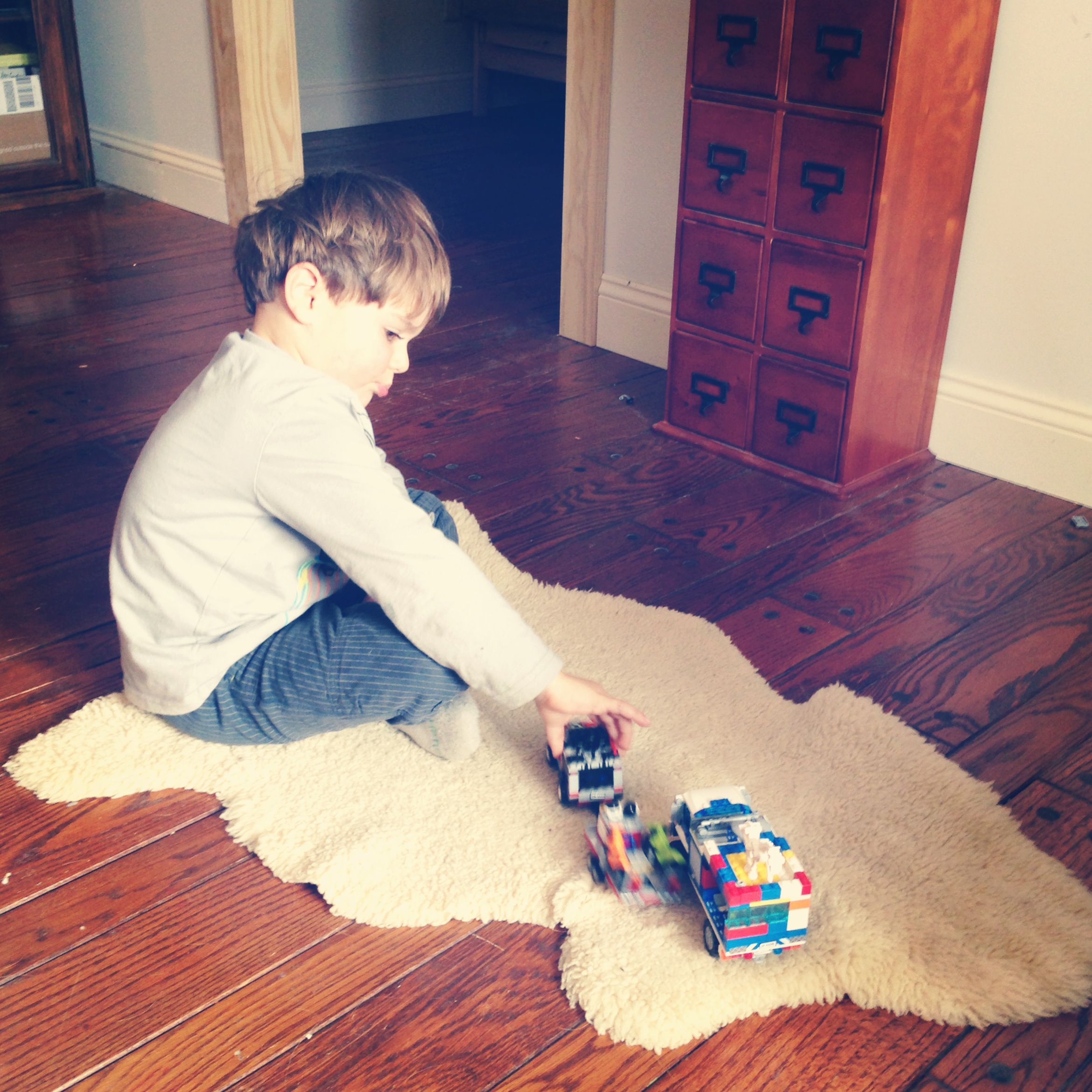
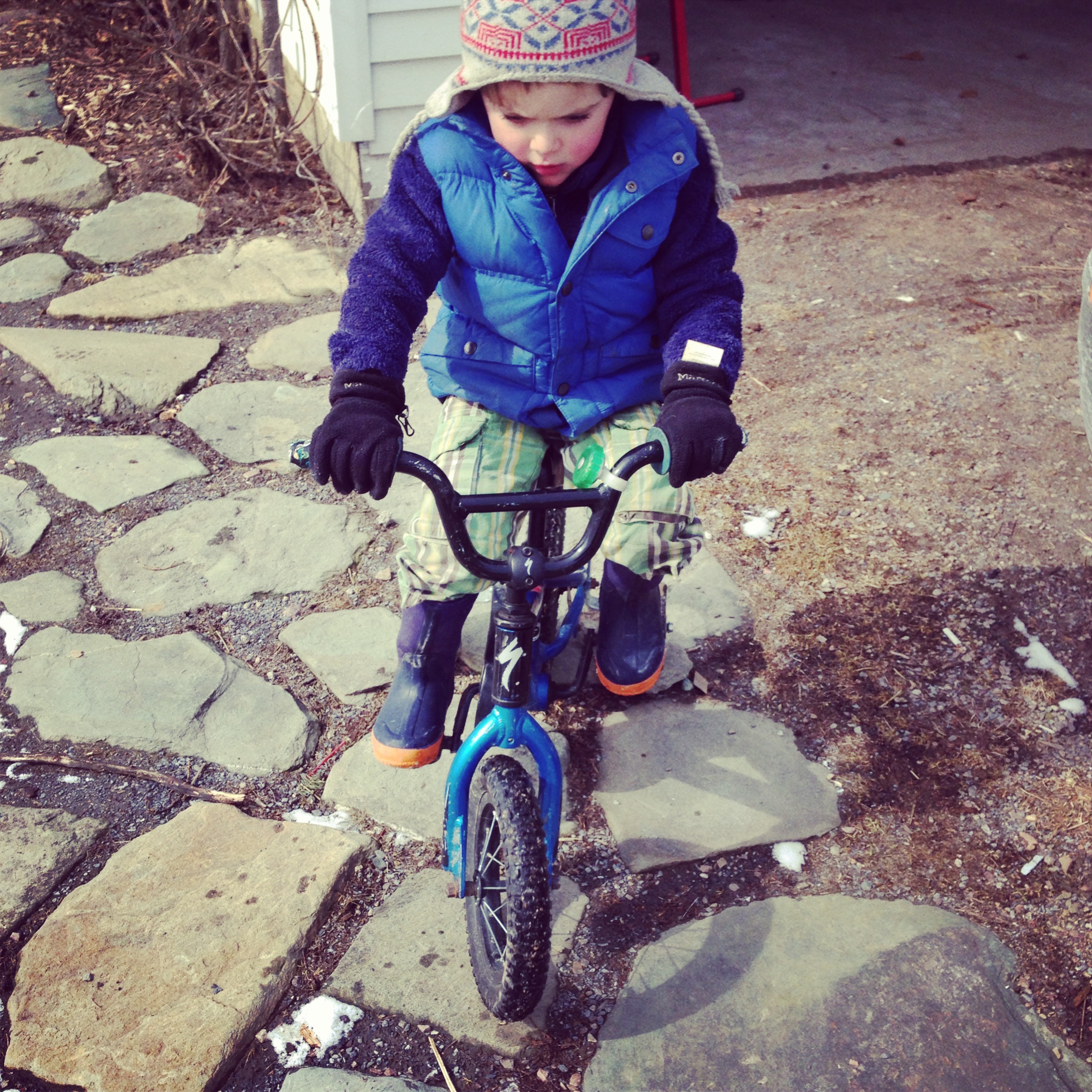
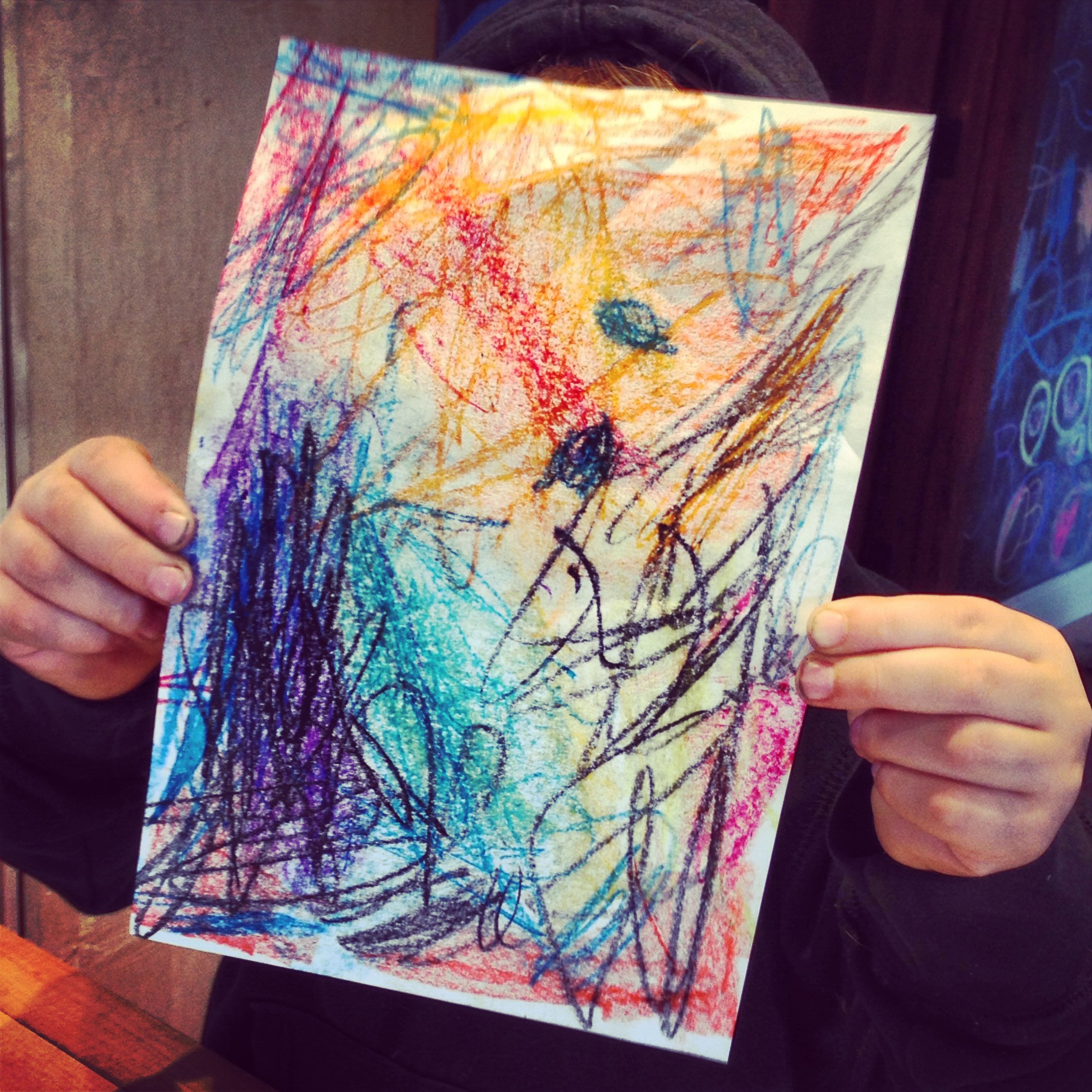
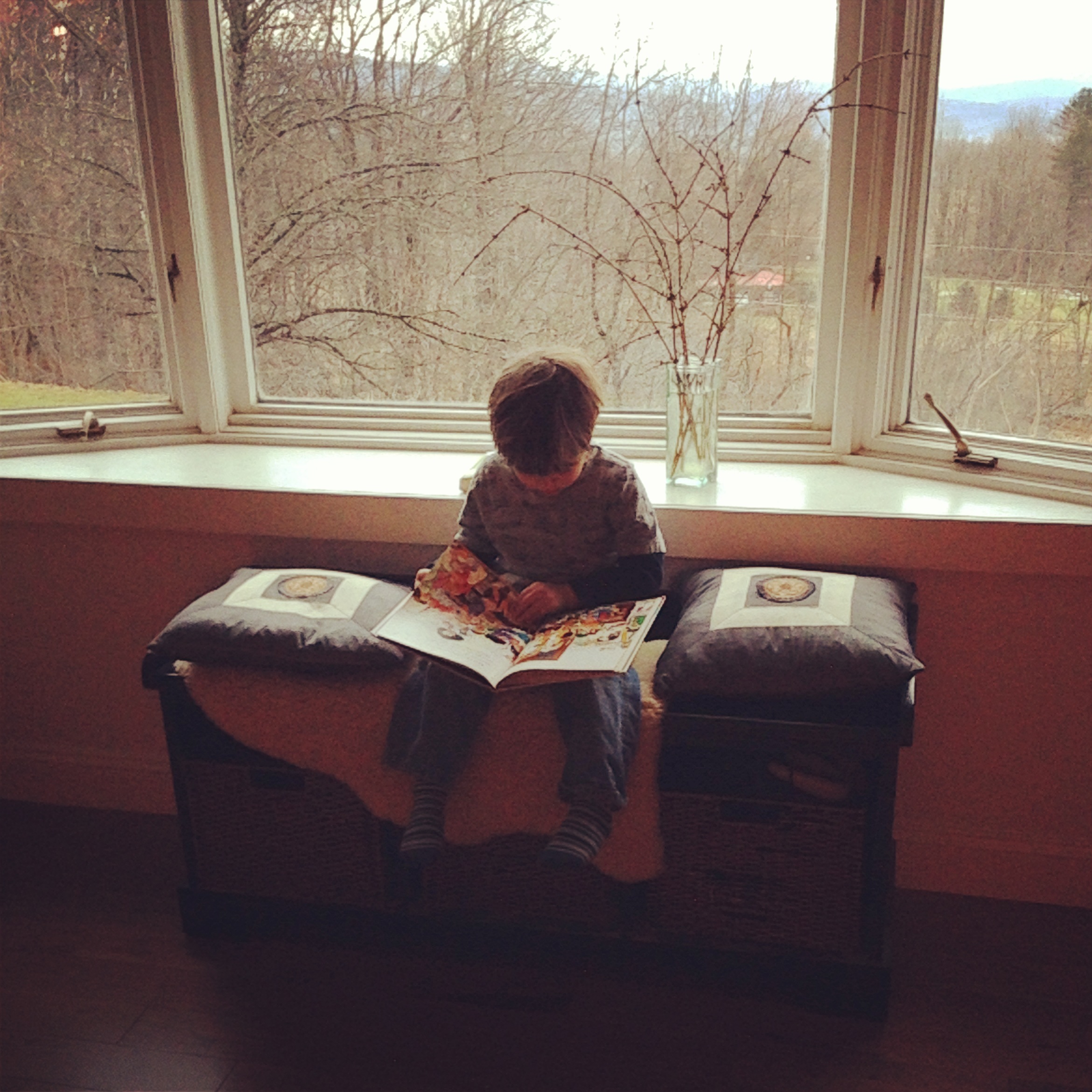
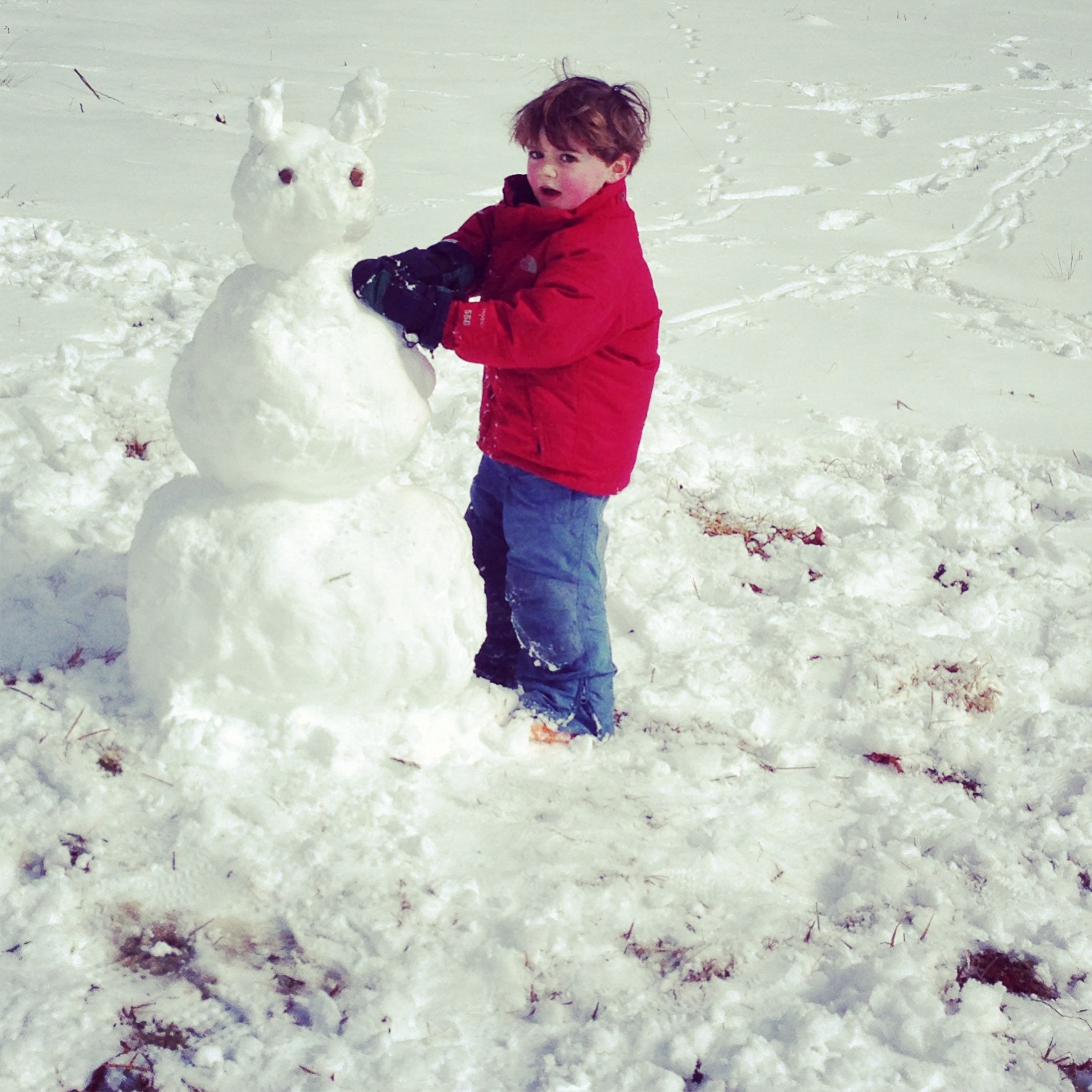 It’s taken us too long, really, to be firm. To take a stand. To say enough’s enough. But to be honest, we were resistant to making the change because we were both a little afraid of what taking it away might mean for the balance in our lives. We pictured bedtimes of wailing, naptimes gone, perpetual whining in between for a week. He’s that kind of kid: stubborn when he wants to be. Also, he has unbelievable eyelashes and the biggest,
widest eyes.
It’s taken us too long, really, to be firm. To take a stand. To say enough’s enough. But to be honest, we were resistant to making the change because we were both a little afraid of what taking it away might mean for the balance in our lives. We pictured bedtimes of wailing, naptimes gone, perpetual whining in between for a week. He’s that kind of kid: stubborn when he wants to be. Also, he has unbelievable eyelashes and the biggest,
widest eyes.
Unlike his big brother, Sprout totally loved his pacifier as a baby. It was a great self soothing mechanism, which, while he was small made all the difference in lulling him easily to sleep. But somehow he’s not small anymore. He’s lanky-legged and solid, and when we’re driving somewhere, just the two of us he’ll tell me silly stories about bears and foxes and coyotes that almost inevitably end with all of them putting spaghetti on their heads and tails, and then he devolves into laughter.
And still, the paci has stuck around. It became a habit long past when instincts linger, and lately? The more he’d use it, the more bratty he seemed to become. Whining at everything. Yelling. Throwing fits when he didn’t get his way.
Still we hesitated, and the truth is I don’t think either of us made the connection entirely between his behavior and our reticence to help him give up that final habit of babyhood. We had a lot of conversations around his fourth birthday. There was mention of a “Paci Fairy,” whom he seemed to marginally believe might really come to collect all his pacis and send them off to a baby who needed them. And there was the suggestion that his baby cousin might need it instead and we should ship them to him instead.
I admit the logic was warped in all cases. But I know you've done this. Made some halfhearted attempt to see just how gullible your kid is, in hopes of being able to make a point or change the course with the least amount of resistance? Wool over eyes. An impossible suggestion to make a point. Knowing the entire while that it won’t really work unless you get behind it too.
All this to say: We were afraid of his resistance and because of this we were halfhearted. Our lives have had all kinds of curveballs lately, and every time we ran the scenarios through in our heads, and we’d end up shrugging and giving up saying, “Well, he’ll grow out of it eventually” or, “He won’t go to high school with it.”
But then this past weekend he was a whiny monster all of Sunday, and at one point when I removed him from some utterly nonsensical embittered argument with Bean over legos or blocks or whatever it was that had devolved into yelling, and while I was carrying him downstairs he wacked a block towards one of the newly painted hallway walls. And somehow that was it. My resistance to change was shaken. I was really in.
I plunked him in a chair for a time-out. He wailed. I resisted, and when repentance crept into his voice, he started asking for his pacifier, out of the blue I said simply, “No, you’re too old for pacis. You’re done. Your behavior has been showing me that it’s making you think like a baby when you need to be thinking like a kid. All done.”
It wasn’t a threat. It was completely the truth. That is the phenomena that I’d been noticing. And when T heard me say it, he nodded and said, “You know, you’re totally right. That’s exactly what’s been going on.”
And just like that, we were both in, and he cried for a while and asked for it about seven hundred times and then he finally climbed down from the chair and ran off to do something else and that was that. That night I heard him muttering “Oh, right, no paci.” And it took him all week to figure out exactly what to do with himself at bedtime—but he did, and we did, and it was almost entirely a nonissue.
His resistance in our heads was so much worse than the actual event.
Which got me thinking about how this isn’t just true with parenting. Watching Sprout ajust to new habits made me realize how often the narratives we tell ourselves resisting change are more difficult to overcome than making the change itself. This is certainly true with my own life too. The starting of a creative habit—the waking up daily, the building of an unbroken goal streak*—it’s actually harder in my head in the moments before I commit to it, than when I do.
So I'm wondering: How many times have you resisted making a change because there’s some story you’re telling yourself in your head? How many times has your own inertia that kept you from swerving off the course you’re on, even if the swerve would inevitably lead to growth? How often do you resist, simply because the story of your resistance is stronger in your than your commitment to change?
What if I told you that all that resistance is far worse than the actual event of change? What would you let go of? Stop doing? Start?
*More on goal streaks & creative habits in my next newsletter coming out on April 1st! SIGN UP.
